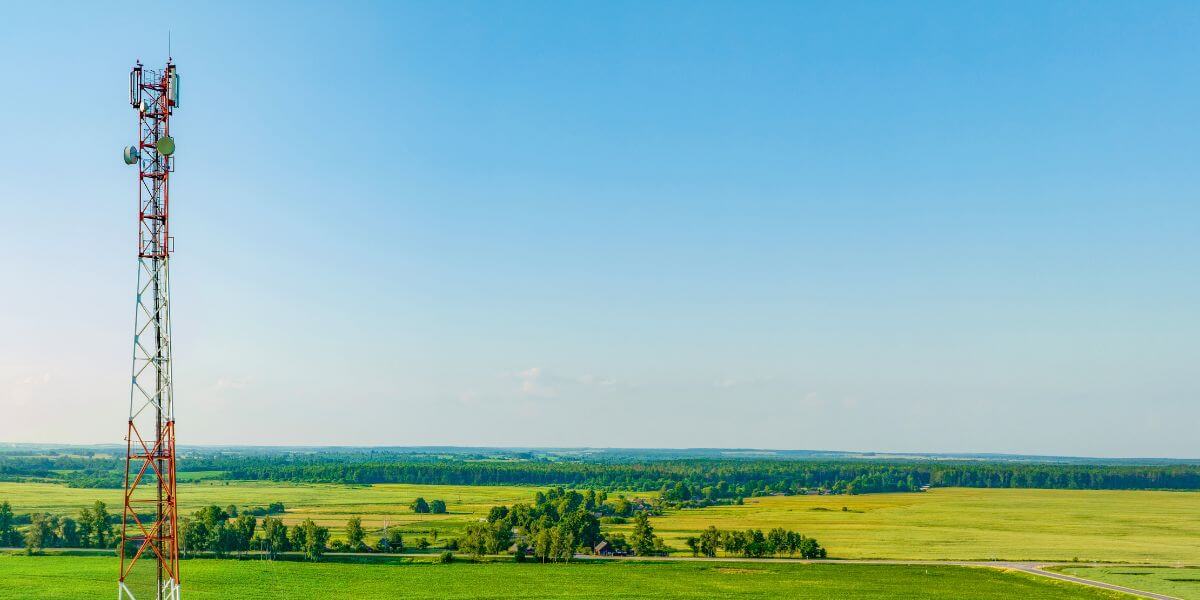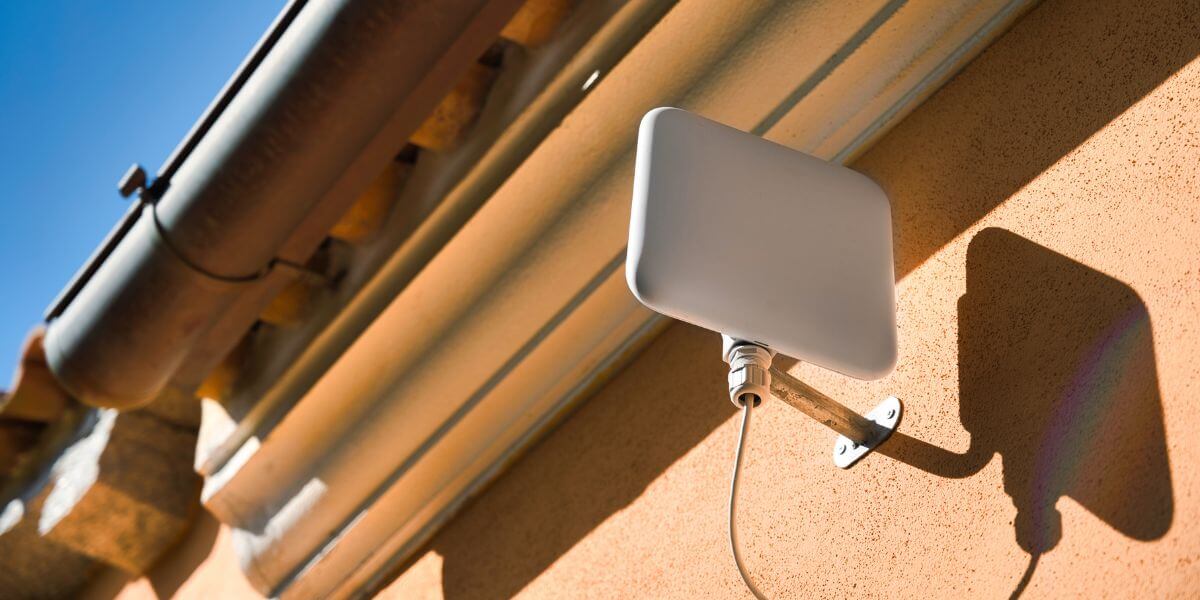Is 4G Dead? What You Need to Know About 4G’s Future
Table of Contents
If you’re wondering “is 4G dead?" here’s the short answer: No, 4G is alive and well.
Despite the constant buzz around 5G technology, 4G networks remain strong and will likely continue serving millions of users for a while. Whether you’re considering a new phone purchase or evaluating internet providers for your home, being at least familiar with the lifecycle of cellular technology can help you make smarter decisions about your connectivity needs.
[search_block]
What Is 4G Technology?
4G refers to the fourth generation of cellular network technology, a set of international standards that enable communication between devices, networks, and service providers worldwide. Implemented around 2008-2009 [1], 4G was a major shift from earlier network generations by operating entirely on internet-based protocols rather than the circuit-switched networks that powered earlier phone systems.
The development of 4G didn’t happen overnight, though. The technology was conceptualized in the early 2000s, but it took years of research, prototype development, and regulatory changes before 4G networks became commercially viable. One significant regulatory milestone occurred when the Federal Communications Commission (FCC) auctioned off radio frequency spectrum previously used for analog television [2], making those frequencies available for 4G networks operated by major carriers.
This demonstrates an important principle: cellular technology generations require coordination between manufacturers, carriers, government agencies, and international standards organizations. When everyone operates from the same playbook, consumers can benefit from devices that work across different networks and geographic regions.

The 4G LTE Confusion: Marketing vs. Reality
If you’ve seen “4G LTE" on your phone and wondered what it means, you’re not alone. The term 4G LTE (Long-Term Evolution) was originally created to describe networks that used some 4G technologies but couldn’t actually deliver true 4G speeds as defined by international standards set by the International Telecommunication Union [3].
When carriers first deployed these networks in the early 2010s, they were technically closer to “3.5G" in performance [4]. The “Long-Term Evolution" label was meant to indicate these networks were evolving toward full 4G capability. However, clever marketing turned this situation upside down. Many consumers began assuming 4G LTE was superior to regular 4G, when it was actually a slower implementation.
This confusion became so widespread that even when carriers finally achieved true 4G speeds, they hesitated to drop the “LTE" designation because customers had been conditioned to believe it represented premium service.
A similar marketing situation emerged with “5GE" (5G Evolution) from AT&T, which was really just enhanced 4G technology branded to sound like 5G. Competitors challenged this misleading advertising, but the damage to consumer understanding was done. These marketing tactics highlight why comparing internet providers and their advertised technologies requires looking beyond the labels to understand actual performance metrics.
What Happened to 3G? A Roadmap for 4G’s Future
Understanding 3G’s lifecycle provides valuable insight into 4G’s expected longevity. 3G networks launched commercially in the United States around 2001 [5] and quickly became the dominant cellular technology throughout the 2000s. As 4G deployment accelerated in the 2010s, 3G usage gradually declined, but carriers continued maintaining 3G infrastructure for nearly two decades.
Major U.S. carriers only began phasing out 3G networks starting in 2022, with most completing the shutdown by early 2024. This 20+ year lifespan from commercial launch to phase-out offers an important benchmark for 4G expectations.
The 3G shutdown freed up valuable radio spectrum that the FCC could then license for newer technologies like 5G. This spectrum reallocation is a key reason why older network generations eventually get retired. It’s about encouraging upgrades, while efficiently managing limited public resources.

When Will 4G Be Phased Out?
No major carriers have announced concrete plans to shut down 4G networks, and based on historical patterns, we can make educated predictions about 4G’s future. If 4G follows a similar trajectory to 3G, we’re looking at 4G networks remaining operational until approximately 2030 or later.
Several factors support this timeline. First, 5G coverage remains limited compared to 4G’s extensive infrastructure. While carriers heavily market 5G capabilities, true 5G speeds — which according to ITU standards should reach at least 20 Gbps — are rarely achieved in real-world conditions. Most “5G" connections today deliver speeds that, while faster than 4G, fall well short of the technology’s theoretical potential.
Second, telecommunications researchers are already working on 6G technology [6], with implementation estimates also hovering around 2030. Historically, carriers don’t phase out older networks until the next generation is already being deployed. Since we didn’t see 3G shutdowns until 5G was underway, it’s reasonable to expect 4G to remain available until 6G deployment begins.
For practical purposes, this means your current 4G devices won’t become obsolete anytime soon. Unless you expect your next phone to last more than seven years — longer than most devices typically survive — you probably don’t need to worry about 4G going away before you’re ready for your next upgrade.

4G vs 5G: Which Technology Do You Really Need?
The 4G vs 5G debate often focuses on maximum theoretical speeds, but real-world performance tells a different story. While 5G can deliver dramatically faster speeds in ideal conditions, 4G provides reliable, consistent performance that meets most users’ needs for streaming, video calls, social media, and web browsing.
When comparing internet plans and technologies, consider your actual usage patterns. If you primarily use your connection for standard activities like video streaming (which requires 25-50 Mbps for 4K quality), social media, and web browsing, 4G’s typical speeds of 15-50 Mbps are entirely sufficient. The best internet in your area might still be 4G-based, especially in rural or suburban locations where 5G infrastructure remains limited.
5G shines in scenarios requiring ultra-low latency or extremely high bandwidth — think augmented reality applications, cloud gaming, or downloading massive files. But for everyday internet use, 4G remains a solid choice that balances performance with wider availability and often better internet prices.
Finding the Best Internet Providers in Your Area
4G technology has evolved beyond mobile phones to provide home internet service, offering an important alternative for people with limited connectivity options. If you live in an area where cable or fiber internet is unavailable or expensive, 4G (and increasingly 5G) wireless internet from providers like Verizon, T-Mobile, and AT&T might deliver better performance at more competitive rates.
When you compare internet providers, consider these factors beyond just advertised technology:
- Coverage and reliability: The best internet technology doesn’t matter if the signal doesn’t reach your location consistently. Check coverage maps and read reviews from customers in your specific area.
- Data caps and throttling: Some wireless internet plans include data limits or slow down speeds after certain usage thresholds. Compare internet plans carefully to understand any restrictions.
- Equipment costs: Factor in router rental fees or purchase costs when doing an internet comparison between providers.
- Bundle opportunities: Some carriers offer discounts when you combine home internet with mobile service.
The internet prices for 4G and 5G home internet typically range from $50-80 per month, often with no contracts or installation fees. This pricing structure can be particularly attractive compared to traditional providers that charge equipment fees and require service commitments.
To find the best internet providers serving your location, enter your zip code in comparison tools that show all available options in your area. This internet comparison approach helps you evaluate actual choices rather than national advertising that might not reflect local availability.
Frequently Asked Questions
Is 4G being phased out in 2025?
No, 4G is not being phased out in 2025 or anytime soon. Based on historical patterns from 3G’s lifecycle, 4G networks will likely remain operational until around 2030 or later. No major carriers have announced plans to shut down 4G infrastructure.
What’s the real difference between 4G and 4G LTE?
4G LTE (Long-Term Evolution) was originally a marketing term for networks that used 4G technologies but didn’t meet full 4G speed standards. Today, most networks labeled as 4G LTE do meet or exceed official 4G specifications, making the distinction largely irrelevant for consumers.
Should I buy a 4G device or wait for 5G?
For most users, buying a 4G device is still perfectly reasonable, especially if it saves money. 4G will remain supported for many years, and 4G-only devices will continue working reliably for their typical 3-5 year lifespan. However, if you plan to keep your device for 5+ years and 5G is available in your area, choosing a 5G-capable device might provide better long-term value.
Can I use 4G for home internet?
Yes, many carriers now offer 4G and 5G home internet service using wireless technology. This can be an excellent option if you have good cellular coverage but limited access to cable or fiber internet. These services typically cost $50-80 per month with no data caps, making them competitive with traditional internet providers in many areas.
Sources
[1] CENGN. “From 1G to 5G: The History of Cell Phones and their Cellular Generations.”
[2] FCC. “Broadcast Incentive Auction and Post-Auction Transition.”
[3] ITU. “An inside look at mobile broadband standards development.”
[4] HowStuffWorks. “How 4G Works.”
[5] Intraway. “A Concise History of The 3G Technology.”
[6] Telco Magazine. “Top 10: Companies Investing in 6G.”












 Call
Call 

 Access Your Account
Access Your Account